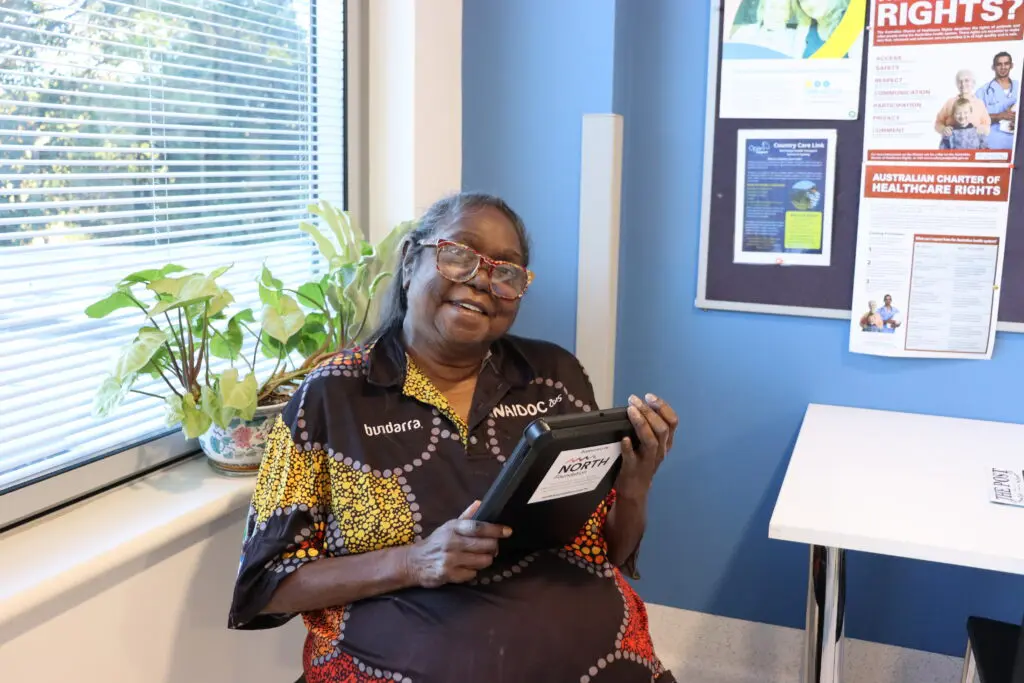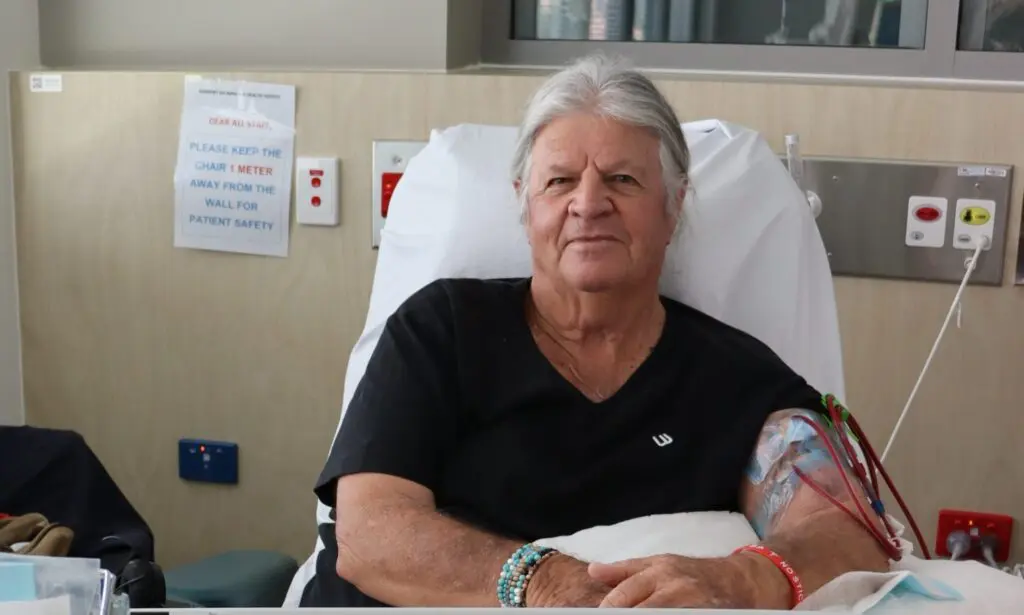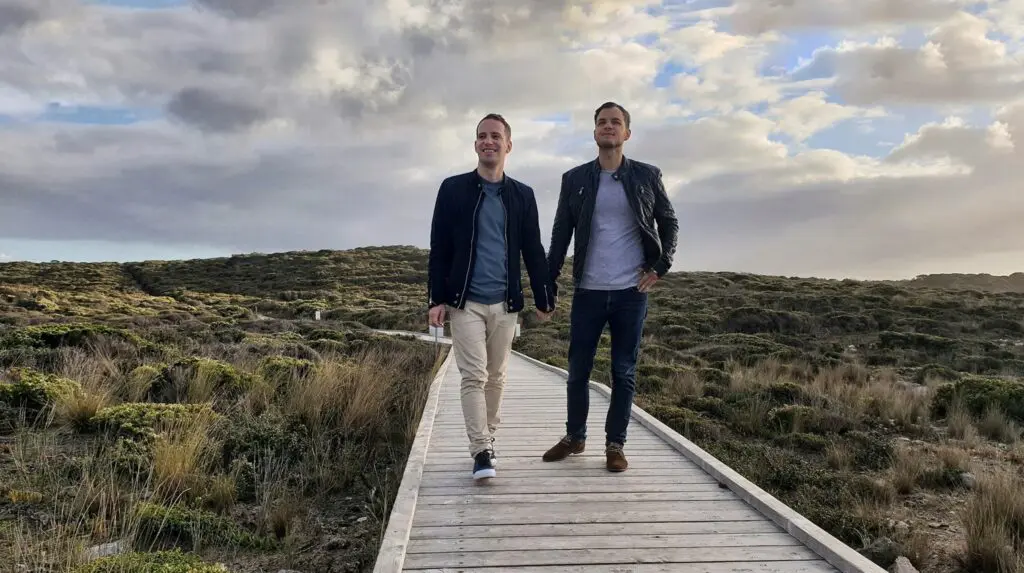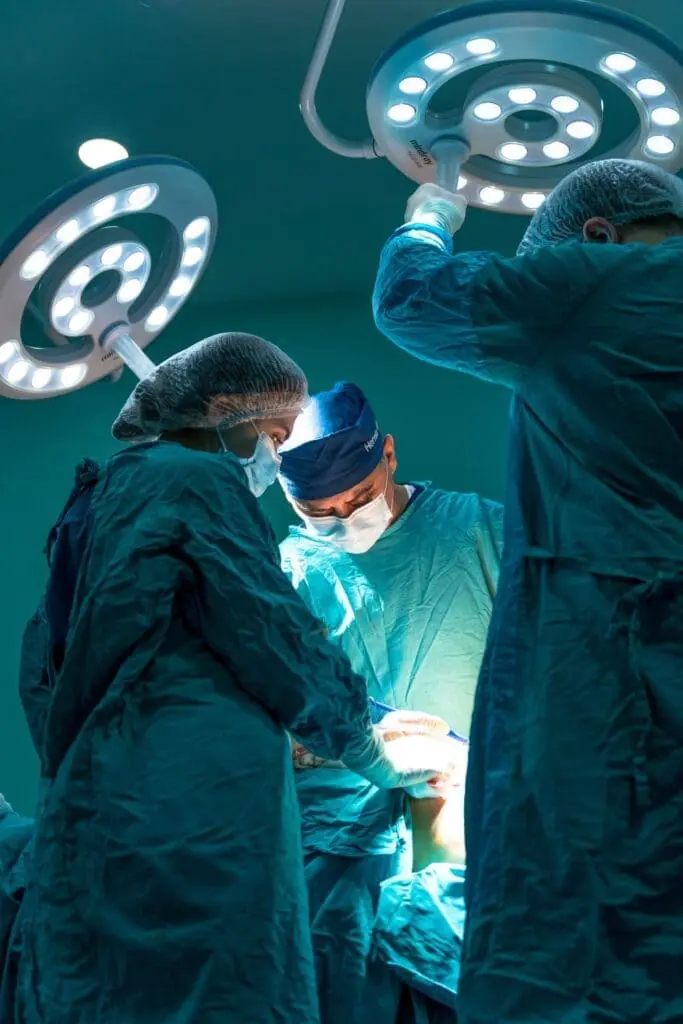
Aboriginal and Torres Strait Islander patients are being provided with enhanced cultural support, thanks to the introduction of iPad technology. The iPad program is entitled Ngalga Ngarra (pronounced Engalga Narra) which in the Dharug Nation language translates in English to Sit, Look, Listen.
Lillian Crombie is of the Pitjantjatjara/Yankunytjatjara people of central Australia and has been receiving dialysis for over four years due to chronic kidney disease. Dialysis treatment helps to filter out waste products and extra fluid from your blood or as Lillian puts it “cleans her blood”.
While she now resides in Port Pirie, South Australia, Lillian originally commenced her treatment when she lived in Sydney, and so she regularly returns to Sydney for specialist appointments and dialysis.
The six iPads will enhance the services and support provided by the Aboriginal and Torres Strait Islander Liaison Officer within the Northern Sydney Local Health District (NSLHD) to Aboriginal and Torres Strait Islander patients who are experiencing feelings of isolation from family, friends and Country (the land of their mother/family).
“Aboriginal and Torres Strait Islander patients and their families, through intergenerational trauma, may be fearful of attending a hospital, especially if it’s away from Country (where they live),” said Paul Weir, Deputy Director of the Aboriginal and Torres Strait Islander Health Service.
"The objectives of the iPad program are to deliver the best in patient-centred care for Aboriginal and Torres Strait Islander patients with further cultural and kinship support, to de-escalate anxieties, feelings of isolation and the desire to discharge from hospital early. This will lead to improved clinical outcomes, such as better adherence to medication and reduced use of healthcare services," said Paul.
The iPads will provide Aboriginal and Torres Strait Islander patients with greater access to culturally appropriate resources, as well as more autonomy in how they choose to use each resource. Patients will be able to customise the support, so it correlates with their own spirituality, language, lore, kindship, sexuality or area of need.
Patients who use the iPads can connect to the existing hospital wi-fi and have unlimited 24-hour access to family and friends as well as culturally specific services, programs and apps.
Lillian receives treatment three times a week with each session lasting up to four hours and enjoys using the iPad to access movies and documentaries and have a yarn to family and friends over FaceTime.
“I can show them where I am, the view and the trees around me,” said Lillian.
Approximately 20 Aboriginal and Torres Strait Islander patients are staying within NSLHD hospitals at any one time. The iPads will be distributed by the Aboriginal and Torres Strait Islander Liaison Officer who also provides cultural support and advocacy through personal visits and phone contact as well as FaceTime during clinical or discharge meetings with family and staff.
Some of the culturally specific services and programs include NITV (National Indigenous Television) which incorporates Aboriginal and Torres Strait Islander news with mainstream national news; Koori Mail, an Australian newspaper owned and produced by Aboriginal and Torres Strait Islander people and Koori Radio, Sydney’s only Aboriginal and Torres Strait Islander radio station. In addition, there are Aboriginal and Torres Strait Islander produced and presented sports program, documentaries and movies and 30 free health and education apps they can access.
The Aboriginal and Torres Strait Islander Liaison Officer also supports NSLHD clinical staff, therapists and practitioners.
"The iPad technology will also support clinical staff in their professional development by providing cultural safe environments in hospital wards. As staff become familiar with the programming content on the iPads and engage in conversation with patients and visitors during routine tasks, it will increase cultural awareness for staff and address unconscious bias," said Paul.
The funding of the iPads was made possible through the NSLHD and NORTH Foundation Grants Program to enhance patient centred care for Aboriginal and Torres Strait Islander inpatients. The Grants Program provides an opportunity for staff across the NSLHD to access untied funding received from compassionate donors who are committed to healthcare and better patient outcomes. To make a donation of untied funding and to fund projects like this, donate to Area of greatest need.



